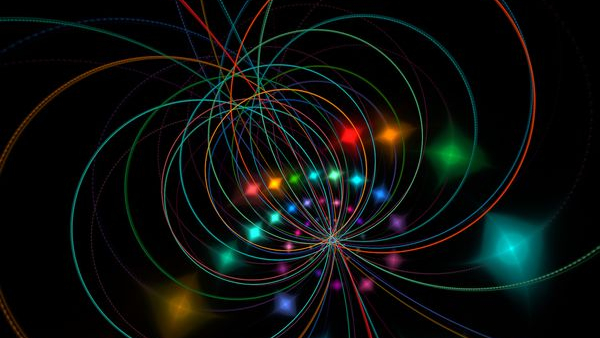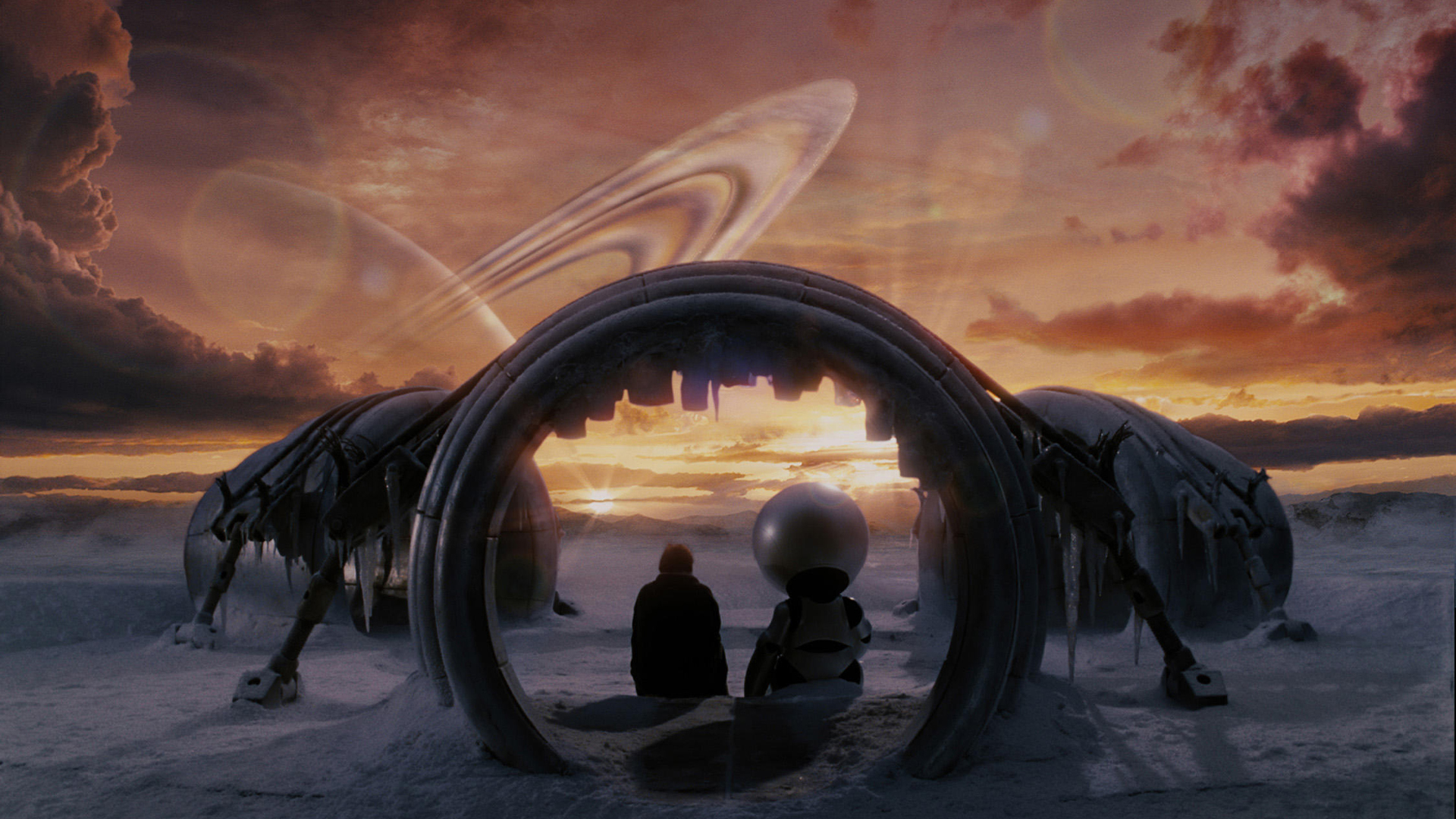Scientists propose 'missing' law for the evolution of everything in the universe
The "law of increasing functional information" says that complex systems in nature evolve to become more complex.

Researchers have proposed a "missing" scientific law for the evolution of life, minerals, planets, stars and pretty much everything else in the universe.
This new law identifies "universal concepts of selection" that drive systems to evolve, whether they're living or not. It addresses the tendency for natural systems in the universe to become more complex over time.
The research team behind the law, which included philosophers, astrobiologists, a theoretical physicist, a mineralogist and a data scientist, have called it "the law of increasing functional information."
"This was a true collaboration between scientists and philosophers to address one of the most profound mysteries of the cosmos: why do complex systems, including life, evolve toward greater functional information over time?" study co-author Jonathan Lunine, a physical science professor at Cornell University, said in a statement.
Lunine and his colleagues described their new law in a study published Oct. 16 in the journal PNAS.
Related: 'Doubly magic' form of oxygen may challenge a fundamental law of physics
Scientific laws are descriptions of observed phenomena. They don't explain why those phenomena exist or what causes them, but they advance our scientific understanding and provide a launching pad for future research.
Get the Space.com Newsletter
Breaking space news, the latest updates on rocket launches, skywatching events and more!
The new law states that "the functional information of a system will increase (i.e., the system will evolve) if many different configurations of the system undergo selection for one or more functions," the researchers wrote in the study.
The law applies to systems that form from numerous components — such as atoms, molecules and cells — which can be arranged and rearranged repeatedly and adopt multiple different configurations, according to the statement. The law also says these configurations are selected based on function, and only a few survive.
Expanding Darwin's theory of evolution, the researchers claim that non-living systems also evolve when a novel configuration of components works and improves function. One example of a function is stability, according to the statement.
The scientific community is reacting to this new law. Commenting on a statement from the Carnegie Science Earth and Planets Laboratory in Washington, D.C., theoretical biologist Stuart Kauffman, professor emeritus of biochemistry and biophysics at the University of Pennsylvania, said the study is a "superb, bold, broad, and transformational article," while Milan Cirkovic, a research professor at the Astronomical Observatory of Belgrade, called the study "a breeze of fresh air blowing over the difficult terrain at the trijunction of astrobiology, systems science and evolutionary theory."

However, The Guardian reported that not everyone is quite so taken with the law, including astronomer Martin Rees, professor emeritus of cosmology and astrophysics at the University of Cambridge.
"Given an immense amount of space and time, and the laws of physics and chemistry, an expanding variety of materials, environments and structures will emerge in the inanimate world," Rees said. "But I don’t see that this need be a manifestation of any new underlying principle analogous to the role of Darwinian selection via inheritance in the biological world."
Join our Space Forums to keep talking space on the latest missions, night sky and more! And if you have a news tip, correction or comment, let us know at: community@space.com.
Patrick Pester is a freelance writer for Space and previously a staff writer at Live Science. His background is in wildlife conservation and he has worked with endangered species around the world. Patrick holds a master's degree in international journalism from Cardiff University in the U.K.
-
rod Very interesting. Compare to Charles Darwin 1882 letter and hope of a general law of nature to describe how non-living matter, evolves into life.Reply
To Daniel Mackintosh 28 February 1882, "...With respect to the main purport of your note I hardly know what to say.— Though no evidence worth anything has as yet in my opinion been advanced in favour of a living being, being developed from inorganic matter, yet I cannot avoid believing the possibility of this will be proved some day in accordance with the law of continuity3 I remember the time above 50 years ago when it was said that no substance found in a living plant or animal could be produced without the aid of vital forces!4 As far as external form is concerned Eozoon shows how difficult it is to distinguish between organised & unorganised bodies—5 If it is ever found that life can originate on this world, the vital phenomena will come under some general law of nature— Whether the existence of a conscious God can be proved from the existence of the so-called laws of nature (i.e. fixed sequence of events) is a perplexing subject, on which I have often thought, but cannot see my way clearly— If you have not read W. Graham’s “Creed of Science” it would I think interest you, & he supports the view which you are inclined to uphold.—6"
ref -https://www.darwinproject.ac.uk/letter/?docId=letters/DCP-LETT-13711.xml&query=general%20law%20of%20nature#hit.rank1
"law of increasing functional information", does this law of nature now fit what Charles Darwin hoped for in 1882? Has this new law of science been tested like Newton's laws of motion or Kepler planetary laws for elliptical orbits or the law of gravity? IMO, seems quite a stretch here to present this as a law of science for abiogenesis or other interesting things in nature. Perhaps it is all summed up, *the law of stuff happens* :) -
Questioner I think 'filter' is a much better term than 'selection'.Reply
'Selection' infers (mental) intent.
'Filter' is a pure passive mechanical/logic operation.
Essentially what they describe seems synonymous with entropy.
Where some (earlier) permutations are considered more 'ordered'.
Probably compounding that with increasing granularity.
Time offering ever more choices.
If time started offering less & less choices that would be anti-entropic. -
rod "law of increasing functional information"Reply
Perhaps this *law of science* can show how life evolved on Ceres and when this life on Ceres evolved from non-living matter. After all, it is said to be a *law* now in science so testing like Newton's laws of motion as an example should be easy.
https://forums.space.com/threads/dwarf-planet-ceres-could-be-a-great-place-to-hunt-for-alien-life-heres-why.63612/ -
A J Foster Reply
Let us consider a thought from someone who has no formal education and is not specialised in the work. Let us consider that in the beginning which is probably a loop of just energy that somewhere there began a form of attraction one to the other and energy became something larger with the same phenomenon again and again.Admin said:The "law of increasing functional information" says that complex systems in nature evolve to become more complex.
Scientists propose 'missing' law for the evolution of everything in the universe : Read more
Eventually there was a group that united and produced the big bang as we called it. There was other energy there and we might call it dark matter. This dark energy provides the filler which keeps protond from being attracted and merging with the Neutron thus eliminating the atom. The same would hold true throughout what we know as reality which is different from actuality. These atoms form all things that we conceive in our universe. These protons swap from one neutrons to another constantly and both are in constant connection. When as we call it a black hole swallows a star or planet that group of atoms is broken up into their small protons and neutrons which in turn are broken up into the different parts that we have recently discovered and then spewed out the bottom as pure energy probably to be scattered into another dimension to again be assembled into another form of energy both animate and inanimate which we can not see or with our present equipment detect. It could be right next to us we would not know. Lets just give it a little thought before you write me off as another nut job. -
TooClose2DC It seems that complex systems do not evolve to become more complex. After all, black holes, or Planck holes, are rather simple as far as we know. Also, everything in our area is being drawn to The Great Attractor which will presumably destroy all the complex systems. With the expansion of the universe making it harder for complex systems to interact, it seems there will be a limit as well as the limit on proton decay where the universe will return to nothingness.Reply -
Thermoman Reply
Hello, I have pulled this post from the past after browsing .Admin said:The "law of increasing functional information" says that complex systems in nature evolve to become more complex.
Scientists propose 'missing' law for the evolution of everything in the universe : Read more
The Universe is formed simply , there is nothing complex about the Universe and neither does it evolve . Things change position etc but to associate evolution with any system is just outlandish .
There exists Physics and Chemistry , there is nothing complex about this . Then there exists biology which becomes really complex .
The complexity of Biology is that Physics or Chemistry can't naturally form complex intelligent designs . The best Chemistry could do is a splodge of growth on a petri dish . The best physics could do is a cluster of dust . Biology is much more different and complex than this because in biology intelligent placement of cells etc is required . Your nose for example is not randomly positioned on your face , it is in the coding of growth to grow specifically in that position .
Cloned positioning is past on generation after generation , even cave men had noses in the right position .
So oddly Darwin thought we evolved from the sea or whatever ,turned into apes , then evolved to be humans but in reality there isn't any sort of physics , chemistry or random event that could intelligently form a complex human form .
To me , Darwin is saying look the Universe can magically construct a V8 engine , placing the parts specifically but common sense and what we know is telling me this simply isn't true .
Everything is made of atoms, is that even true ,atoms don't grow like a finger nail or hair !
Well here is the shocker , it takes volume times wavefunction to build a V8 engine , placing specific parts by order . Therefore in my opinion it would require volume times wavefuction (thought) to form a human ,placing eyes , nose , etc .










